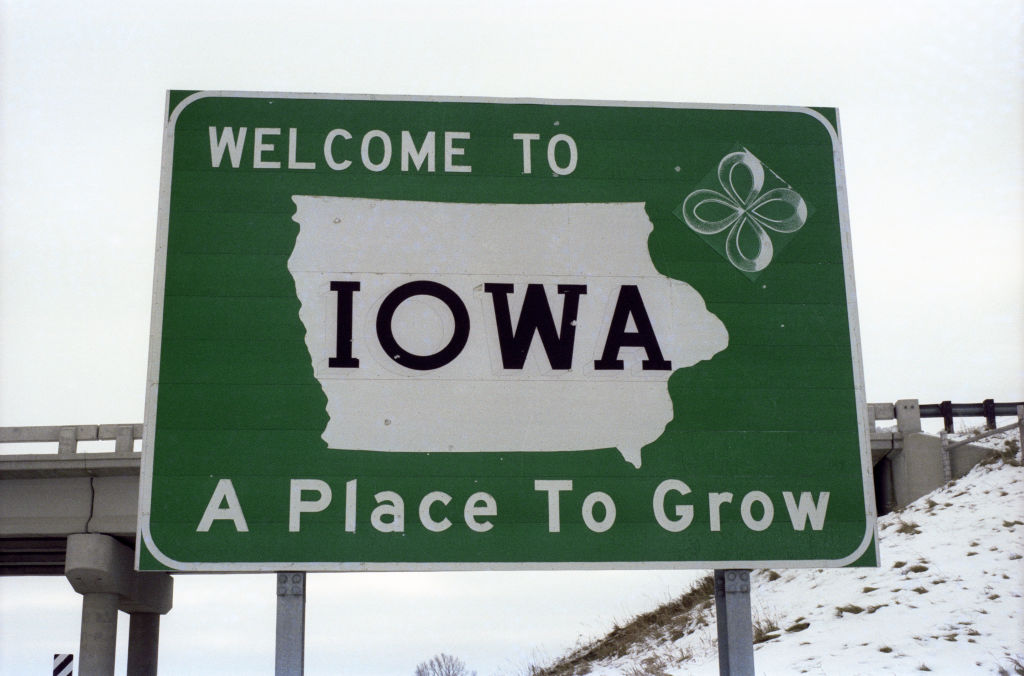Vice President Joe Biden was not exaggerating when at a signing ceremony at the White House for the Affordable Care Act in March 2010, he turned to President Barack Obama and said, “This is a big f*****g deal.”
While the comment was intended to be private, a hot microphone at the podium picked it up. But it may as well have been stated openly because it encapsulated sentiments among proponents and opponents of the hotly contested law. Indeed, even today the law remains “a big f******g deal” as it approaches its 4-year anniversary on March 23.
The remark, despite its lack of refinement, served as an exclamation point at the end of a hard-fought battle for Democrats. The president’s signature health care law symbolized one of the biggest policy changes in the history of the United States since the passage of Medicare and Medicaid in 1965.
Since 2010, children have been able to get coverage despite pre-existing conditions, and stay on their parents’ health insurance policies until age 26. The provision on pre-existing conditions now applies to all people. Other changes have rolled out over the years, the biggest being the launch in January of health care insurance marketplace plans aimed at ensuring that all Americans have affordable coverage.
RELATED STORY: Surprising Health Care Law Concerns For Cancer Patients
Meanwhile, for the Republican Party, the ACA signing ceremony represented a sort of uh-oh moment signaling the need for retrenchment. Members immediately moved to dismantle the law, a fact that the president noted in his most recent State of the Union address, when he said pointedly, “Let’s not have another forty-something votes to repeal a law that’s already helping millions of Americans….The first forty were plenty. We got it.”
Yet those efforts persist today (there have actually been at least 50 House votes to repeal the law), even as the White House announced Monday that more than 5 million people had signed up for private health insurance since open enrollment began in October.
That figure includes about 800,000 enrolled just within the last two weeks. The announcement, however, did not include a demographic breakdown of new enrollees, people who were previously uninsured, or information about their ages. As Slate notes, observers are keen to get a handle on the percentage of sign-ups who are between the ages of 18 and 34, a healthy group needed to keep costs down.
Plus, the administration is still falling short of its initial goal of enrolling seven million by the March 31 deadline for individuals to get covered. Expectations were revised to six million after the October rollout was beset by delays and computer glitches, a period that led to sliding public approval for both President Obama and the health care law (His poll numbers have yet to bounce back significantly from all-time low levels.)
RELATED STORY: No Health Insurance? Why You Must Sign Up By March 31 – Or Pay Up
But the countdown is on. After March 31, individuals will be ineligible to enroll in any health insurance marketplace plan for 2014 coverage — through federal or state exchanges established by the Affordable Care Act (ACA), commonly known as Obamacare, according to HealthCare.gov. And signing up for insurance by other means after the deadline doesn’t guarantee exemption from a penalty.
At tax time next year, those who failed to obtain health insurance coverage in 2014 – through the ACA-created health insurance marketplace, their employers, private health insurers, COBRA, Medicare, Medicaid, veterans coverage, or other means — will pay a penalty of either 1 percent of their yearly household income or $95 per person in their 2014 tax return — whichever number is higher. Everyone who can get health insurance must be enrolled by the deadline.
Nevertheless, a third of Americans without health insurance intend to stay that way, according to a report by Bankrate.com. The most common reason given is the presumed cost. An estimated 70 percent of those planning not to purchase insurance say they were unaware of subsidies under Obamacare that help reduce costs. The report shows that, despite the government’s effort to promote the new health law, most Americans are still unaware of key details about it.
In an effort to increase awareness and enrollment numbers, the White House has been pulling out all the stops, including promotions that feature the president, First Lady Michelle Obama and interviews with Kathleen Sebelius, secretary of the U.S. Dept. of Health and Human Services.
On Monday, the administration released a health-care enrollment campaign using the NCAA National Championship tournament called “16 Sweetest Reasons to Get Covered” bracket listing the top reasons to obtain health insurance. It also includes celebrities like Miami Heat star LeBron James and a video featuring two well-known college coaches urging Americans to sign up before open enrollment ends.
RELATED STORY: Obama Pitches Obamacare On Funny Or Die
At the same time, House Republican leaders are in the midst of crafting a new measure to counter it, the Washington Post reports. The plan includes an expansion of high-risk insurance pools, promotion of health savings accounts and inducements for small businesses to purchase coverage together.
Further, Republicans plan to use this year’s midterm elections to crusade heavily against the health-care law, wagering that anger over glitches and mandates will help them to gain seats in the House and take control of the Senate. Those efforts received a boost last week after Republican David Jolly’s upset victory in a special House election in Florida that was touted as a referendum on opposition to Obamacare (though Jolly denied this was the case).
The upset has given some Democrats, up for re-election, pause about aligning themselves so closely with the hotly-contested measure, fearing it could result in a repeat of the Republican sweep in 2010.
In an effort to assuage concerns among politicians and voters, the Obama administration plans to allow companies to continue offering health plans that do not meet the coverage standards set forth by the ACA, according to the New York Daily News. Without the delay, scores of voters would have lost their health insurance. Earlier, the administration delayed another key provision of the law, postponing a requirement that larger employers provide coverage or pay a fee. The mandate was set to go into full effect this year, but was first delayed until 2015 and now will not be implemented until 2016.
Despite problems, Sebelius testified last week before the House Ways and Means Committee that the law is ready to go into full effect and that there would be no more delays on the individual mandate. Pushed at the hearing on the administration’s measure of enrollment success, Sebelius declined to specify a number, the New York Times reports.
But she did paint a picture of success, which matches the original intention of the law: “Success looks like millions of people with affordable coverage which they will have by the end of March.”
























